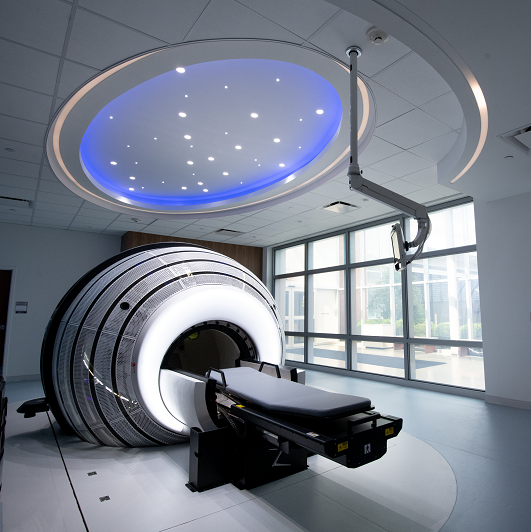
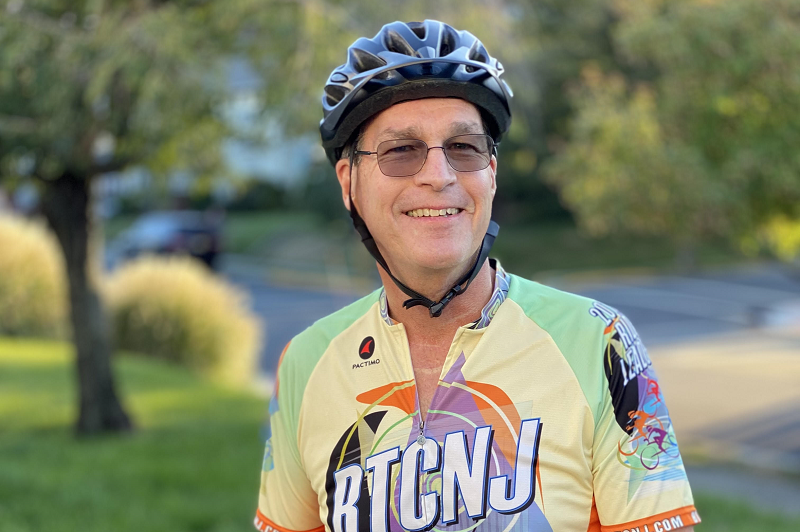
Michael Kerlen was in the thick of a 3-month, high-dose chemotherapy regimen for an aggressive type of lymphoma in early 2019 when the anvil dropped: it wasn’t working. A patient at the John Theurer Cancer Center at Hackensack University Medical Center, the Hawthorne man’s prospects for long-term survival were dwindling.
“It was really rough,” recalls Michael, now 63. “I was thinking, ‘If I’m on the toughest chemo they’ve got, where do we go from here?’”
Fortunately, the father of three didn’t have to go anywhere else to get access to the very latest cancer treatment advances. The John Theurer Cancer Center was one of 77 sites taking part in an international clinical trial testing revolutionary CAR T-cell therapy, which re-engineers patients’ immune cells to attack cancer. The cell therapy saved his life and restored his health.
“Without the clinical trial, his lymphoma likely could have taken his life,” says Lori Leslie, M.D., director of the indolent lymphoma and chronic lymphocytic leukemia research programs at the John Theurer Cancer Center. “Michael is a funny, easy-to-root-for guy who was willing to do anything he could to get better. It was really wonderful to get a great result for someone in such a dire situation.”
New Immunotherapy for Blood Cancers
An avid cyclist with no prior major health challenges, Michael was diagnosed with diffuse large B-cell lymphoma, a type of blood cancer, in 2018 after developing a fast-growing lump on his neck. The most common type of lymphoma among American adults, diffuse large B-cell lymphoma accounts for about half of the 80,000 new cases of non-Hodgkin’s lymphoma diagnosed in the United States every year.
Through molecular testing, Michael’s lymphoma was determined to be aggressive, leaving him at a higher risk of relapsing after chemotherapy. That’s why doctors placed him on a high-dose regimen, but the strategy still didn’t stop his cancer. Halfway through treatment, Michael’s neck lump “came back with a vengeance,” he says.
Michael had never heard of CAR T-cell therapy, a type of immunotherapy that was first approved by the U.S. Food and Drug Administration (FDA) in 2017. Now used to treat various types of blood cancer, including advanced cases of lymphoma, leukemia and multiple myeloma, CAR T-cell therapy collects immune cells called T cells from patients’ blood and customizes them to recognize and destroy cancer cells. CAR T-cell therapy leads to complete remission for 40 to 60 percent of patients with diffuse large B-cell lymphomas like Michael’s, according to 2023 research.
Dr. Leslie told Michael about the clinical trial, which studied whether or not patients with his type of lymphoma—and who’d relapsed once—could benefit from CAR T-cell therapy. (Previously, the treatment was approved for his type of cancer only after two relapses.) He quickly recognized its promise. “This was my only hope,” he says.
Quick Results Lead to Steady Remission
Clinicians infused Michael with his re-engineered T cells on “Day 0” in late winter 2019. Then the waiting began. Paradoxically, high fevers a week later were considered a good sign, indicating Michael’s immune system was “doing what it needed to” to eradicate cancer cells. Two weeks later, imaging scans confirmed suspicions, showing a dramatic reduction in Michael’s tumor size.
“Within the first month, we already knew he was having a significant response and was near remission,” Dr. Leslie says. “We were all overjoyed.”
Five years later, Michael’s lymphoma hasn’t returned and all signs point to a cure. “Giving him access to cutting-edge care was likely life-saving,” says Dr. Leslie.
Michael isn’t wasting a moment, spreading empathy wherever he goes. During the early days of the COVID-19 pandemic, the trade/import professional biked to all of his colleagues’ homes to decrease their sense of isolation. He also, through his church, was moved to focus on house visits with seniors to make them feel less alone.
Michael remembers how difficult staying apart from others was during his treatment, when he was immunocompromised and couldn’t risk catching any germs. “I certainly appreciate life and the people around me more now,” he says. “Faith, family and friends were all significant in helping me get through this difficult time.”
Next Steps & Resources
- Meet our source: Lori Leslie, M.D.
- To make an appointment with an oncologist near you, call 800-822-8905 or visit our website.
- Learn more about cancer care at Hackensack Meridian Health.
- Schedule a cancer screening near you.
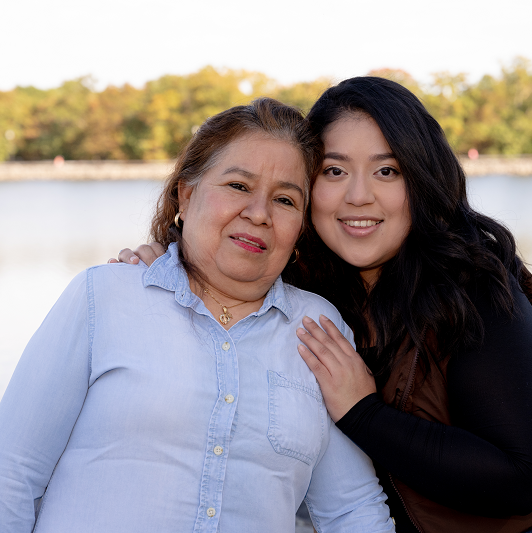
Patient Treated for Two Unrelated Cancers in Six Months
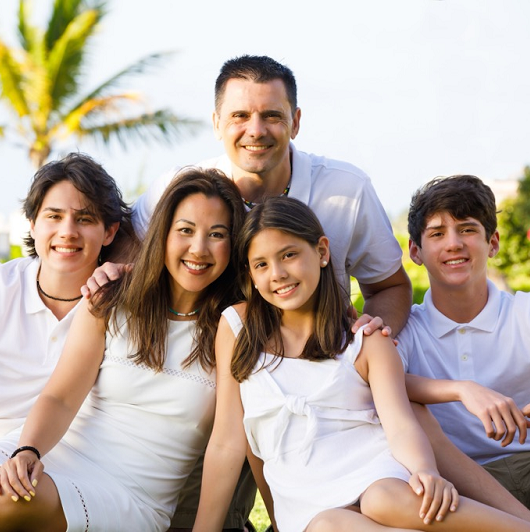
Targeted Sarcoma Treatment Gets NJ Runner Back in Action
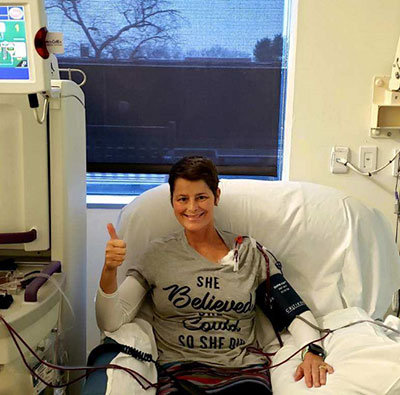
‘Carpe Diem’ Rings True for Little Silver Cancer Survivor
